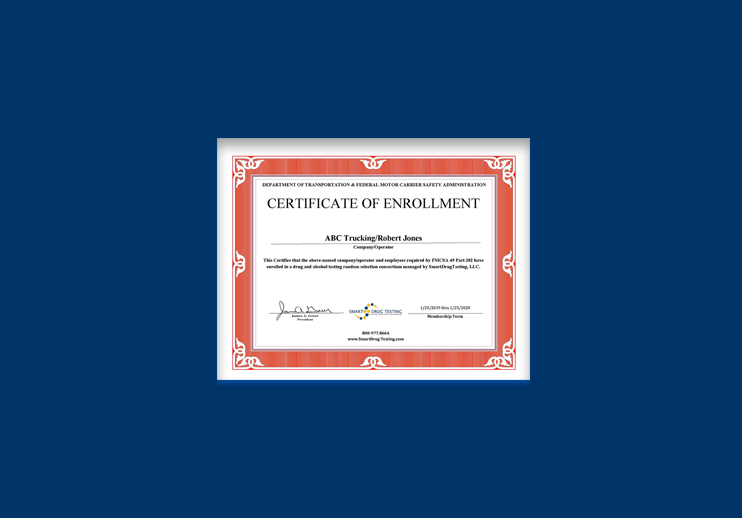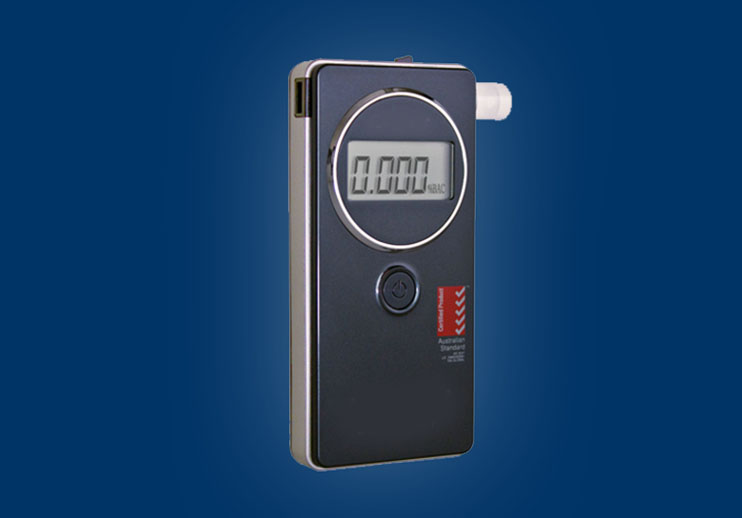DOT Drug Testing in Illinois
DOT Testing in Illinois
We provide Illinois DOT Drug Testing, DOT Alcohol Testing, DOT Physicals and DOT Consortium enrollment at locations throughout the State of Illinois. Our Illinois DOT Drug Testing locations are within minutes of your home or office. Same day service is available in most places.
The staff of Schedule a Drug Test, a division of Accredited Drug Testing, Inc., is trained and certified in Illinois DOT drug testing procedures and all Illinois DOT drug tests are analyzed by a SAMHSA Certified Laboratory and reviewed by our licensed physicians, who serve as the Medical Review Officers (MRO). To schedule a DOT drug test at any of our Illinois locations, call (800) 315-1519 or you may schedule your test 24/7 by clicking the “Order your Test” button.
What is a DOT drug test?
A DOT Drug test is a drug test that’s regulated by the government – specifically, the Department of Transportation (DOT).
In 1991, the US Congress passed the Omnibus Transportation Employee Testing Act when they recognized the need for a drug and alcohol-free transportation industry. The act required DOT agencies to implement drug and alcohol testing of safety-sensitive employees to maintain the safety of the traveling public and workers.
The DOT’s drug screening rules and procedures are listed within Title 49 of the Code of Federal Regulations (CFR) Part 40, commonly known as “Part 40.” These rules are published by an office within the DOT; the Office of Drug & Alcohol Policy & Compliance (ODAPC).
DOT agencies and the U.S. Coast Guard write industry-specific regulations that explain who is subject to testing, when, and in what situations. Industry employers implement the regulations that apply to their business.
Who is required to get DOT drug tests?
Anyone designated in DOT regulations as a “safety-sensitive” employee is subject to DOT drug and alcohol testing. A safety-sensitive employee is someone who holds a job that can impact both their own safety and the safety of the public.
These are some of the DOT departments with safety-sensitive positions:
- Federal Aviation Administration: Flight crews, flight attendants, aircraft dispatchers, ground security coordinators, etc.
- Federal Motor Carrier Safety Administration: Commercial Driver’s License (CDL) holders who operate Commercial Motor Vehicles (CMVs), vehicles that carry 16 passengers or more (including the driver), or vehicles that transport hazardous materials and are required to display a DOT placard.
- U.S. Coast Guard: Crew members operating a commercial vessel.
- Pipeline and Hazardous Materials Safety Administration: Operations, maintenance, and emergency response workers.
- Federal Railroad Administration: Hours of Service Act personnel, engine & train workers, signal service workers, or train dispatchers.
- Federal Transit Administration: Vehicle operators, controllers, mechanics, and armed security.
What do DOT drug tests test for?
All DOT drug tests use the same 5-panel test. It tests for:
- Marijuana metabolites/THC
- Cocaine metabolites
- Amphetamines (including methamphetamine, MDMA)
- Opioids* (including codeine, heroin (6-AM), morphine, hydrocodone, oxycodone, hydromorphone, and oxymorphone)
- Phencyclidine (PCP)
Although there are several options for drug tests, DOT regulated drug tests must use urine samples.
When are safety-sensitive employees required to get DOT drug tests?
DOT drug tests are required in the following situations:
Pre-employment, or before you start your job responsibilities.
Reasonable suspicion/cause, or if one or more trained supervisors reasonably believes/suspects that you are under the influence of drugs. This must be based on observations concerning appearance, behavior, speech, smell, etc.
Random testing. Random tests must use a truly random selection process – each employee must have an equal chance to be selected and tested. These are completed quarterly.
Return-to-duty testing, which is required after a violation of drug and alcohol rules. You can’t return to any DOT job before being tested and may be subject to unannounced testing at least 6 times in first 12 months. These tests must be conducted under direct observation.
Follow-up testing that takes place after return-to-duty. A Substance Abuse Professional (SAP) manages the follow-up testing for up to 5 years, determining how many times an employee is tested, and for what substance. These are completed in addition to other DOT required testing.
Post-accident testing. This is required if you’re involved in an accident meeting certain DOT criteria. An alcohol test must occur within 8 hours of the accident, and a drug test within 32 hours.
What happens if I fail my DOT drug test?
If you fail your DOT regulated drug test, DOT regulations require your employer to immediately remove you from performing any DOT safety-sensitive job. There may be other consequences, too, like losing your certification or license. This depends on your company’s policy or employment agreement.
Schedule a Drug Test, a division of Accredited Drug Testing, Inc., workforce experts stay up-to-date on DOT regulations, and can ensure that your business maintains compliance. If you’re interested in using our regulated drug testing services, connect with a member of our team. Our clinics also have a certified medical examiner on hand at all times to perform DOT physicals.
(Reference: https://www.transportation.gov/sites/dot.gov/files/docs/Employee_Handbook_Eng_2014_A.pdf)
We Have DOT Drug Testing Centers in all cities throughout the State of Illinois and nationwide. (Call for additional drug testing locations)
Please be aware that our Illinois DOT drug testing centers do not accept any form of payment and require a test registration/ donor pass to administer a drug, alcohol, or any other type of test. You must call (800) 315-1519 to register for a test or you may register online, no appointment is needed, but a test registration form is required. Your zip code will be used to find our closet drug testing center to perform the drug or alcohol test which is needed.
Our Illinois drug testing services are delivered with the highest commitment to customer satisfaction and we are dedicated to providing convenient, cost effective and confidential drug and alcohol testing services with one of the fastest results reporting methods available in the industry. Regardless if you are an individual ordering one test or an employer scheduling 100 tests, our commitment to providing outstanding customer service is the same. We also only use certified laboratories and all test results are verified by our Medical Review Officers (MRO).
On the road or on vacation? No worries. Schedule a Drug Test has over 10,000 Drug and alcohol testing centers available in all cities and we can schedule your test, ANYWHERE, ANYTIME!
FAQ's About DOT Testing in Illinois
DOT drug testing is different from regular drug tests. For example, even though there are several ways to perform a drug test, the DOT only allows urine drug testing. They also require a very thorough testing process, so results usually take longer to process.
- HHS certified lab testing only
- No rapid, instant, or point of contact testing permitted
- Tests for marijuana, cocaine, phencyclidine, amphetamines and methamphetamine, opiates
Here are some examples of jobs that must be tested as part of the DOT drug testing program. This list isn’t comprehensive, and certain jobs may have additional requirements. For a full list, please visit the Department of Transportation’s website.
- Commercial vehicle drivers
- Locomotive engineers, dispatchers, and signalmen
- Flight crew members and air traffic controllers
Cannabis: 7-30 days in urine and up to 2 weeks in blood.
Cocaine: 3-4 days in urine and 1-2 days in blood.
Codeine: 1 day in urine and up to 12 hours in blood.
Heroin:3-4 days in urine and up to 12 hours in blood.
The Department of Transportation has different testing requirements for different areas of transportation. For example, air traffic controllers may not have the same testing requirements as commercial vehicle drivers. To find the requirements for your industry or job, visit Transportation.gov. You can also sign up for their newsletter so you’ll be notified if anything changes.
The Department of Transportation (DOT) has special requirements for drug testing. These requirements impact jobs governed by DOT regulations, like trucking and commercial vehicle drivers. DOT drug tests can be performed for many reasons. They can be performed randomly, when an employer has reasonable suspicion that an employee is intoxicated, as part of a DOT physical exam, after an accident, and as part of a return-to-duty exam—just to name a few.
If your urine is being tested only for a urinalysis, you can eat and drink normally before the test. If you‘re having other tests at the same time, you may need to fast for a certain amount of time before the test.
Illinois (/ˌɪlɪˈnɔɪ/ (listen) IL-ih-NOY) is a state in the Midwestern region of the United States. It has the 5th largest Gross Domestic Product by state, is the 6th-most populous U.S. state and 25th-largest state in terms of land area. Illinois is often noted as a microcosm of the entire United States.[6] With Chicago in the northeast, small industrial cities and great agricultural productivity in northern and central Illinois, and natural resources such as coal, timber, and petroleum in the south, Illinois has a diverse economic base, and is a major transportation hub. The Port of Chicago connects the state to other global ports around the world from the Great Lakes, via the Saint Lawrence Seaway, to the Atlantic Ocean; as well as the Great Lakes to the Mississippi River, via the Illinois Waterway on the Illinois River. The Mississippi River, the Ohio River, and the Wabash River form parts of the boundaries of Illinois. For decades, Chicago’s O’Hare International Airport has been ranked as one of the world’s busiest airports. Illinois has long had a reputation as a bellwether both in social and cultural terms[6] and, through the 1980s, in politics.
The capital of Illinois is Springfield in the central part of the state. Although today the state’s largest population center is in and around Chicago in the northeastern part of the state, the state’s European population grew first in the west, with French who settled along the Mississippi River and gave the area the name Illinois Country. After the American Revolutionary War established the United States, American settlers began arriving from Kentucky in the 1780s via the Ohio River, and the population grew from south to north. In 1818, Illinois achieved statehood. After construction of the Erie Canal increased traffic and trade through the Great Lakes, Chicago was founded in the 1830s on the banks of the Chicago River, at one of the few natural harbors on southern Lake Michigan.[7] John Deere’s invention of the self-scouring steel plow turned Illinois’s rich prairie into some of the world’s most productive and valuable farmland, attracting immigrant farmers from Germany and Sweden. The Illinois and Michigan Canal (1848) made transportation between the Great Lakes and the Mississippi River valley faster and cheaper. New railroads carried immigrants to new homes, as well as being used to ship commodity crops to Eastern markets. The state became a transportation hub for the nation.[8]




